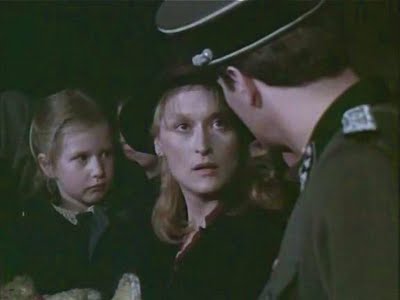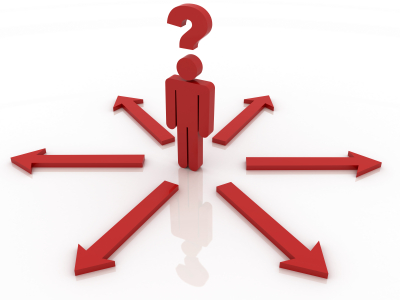A friend asked me the other day if there’s one recurring theme I return to in my fiction. That is a hard question to answer (try it!). After some thought, I decided that “the moral dilemma” is something I find incredibly appealing in storytelling … both as a creator and consumer.
To be clear, when I speak of “moral dilemma,” I do not mean “controversial political issue.” The two are often conflated. A moral dilemma is a situation where every alternative available breaks a moral rule. Your character has to take some action, but there is no “good” action to take. If structured well, the reader will feel the pain of the terrible choice, and will leave the scene or story wondering what she would have done. The more anguished the character, the more powerful the story. The reader and the writer alike are left as unsettled as the character, and the story becomes unforgettable.
Reaching far back in world literature, we have the wretched decision faced by Abraham in the Old Testament. God instructs him to slay his own son, Isaac. Abraham has exactly two unpleasant alternatives: ignore God (and, hello! disobey the creator of the universe!) or kill his own child.
 |
| Agamemnon and Iphigenia |
World mythology is full of people sacrificing their offspring to the gods, but in the case of Tantalus, the gods didn’t appreciate the act. He killed his son in offering to the Olympians, and for this he is eternally punished: he is sent to Hades, to stand forever in a pool of cool water with fresh fruit dangling above his head. When he is thirsty and bends to drink the water, it recedes from his lips. When he is hungry and reaches for the fruits, they retreat from his grasp. A miserable situation, all right: but not a moral dilemma. It’s good to keep in mind that being trapped or stuck is not necessarily the same as a moral dilemma — though it can increase the tension and pace of a story.
 |
| Stephen Blackpool and his burden |
I know what I would have done. As I was reading along, I wanted to yell at him, “Let her drink the poison! Come on, Stephen!” Dickens masterfully draws out the scene, ratcheting up the tension, drawing you into Stephen’s agonized state of mind. (For the resolution, turn to the chapter entitled “Rachael.”)
 |
| Which child will you choose? |
Continuing forward in time, we have perhaps the current reigning queen of the ethical dilemma, Jodi Picoult. Her novel My Sister’s Keeper has the protagonist caught between continuing on as her sister’s bone-marrow donor, or seizing control of her own destiny and refusing to be part of her parents’ plans anymore. In addition to the grueling choice faced by the main character (it’s ethically muddier than it even sounds), you are also presented with the initial decision made by the parents: is it ethical to conceive a child for the sole purpose of becoming a bone-marrow donor for her sick sister?
In Erin Morgenstern’s magical, literary genre-bender, The Night Circus, young magicians Celia and Marco are caught up in a competition than lands them both in an ethical dilemma. The bad guy has set them up to choose between their love for each other and their own survival. Sound familiar? It’s quite similar to the situation faced by Katniss and Peeta in The Hunger Games: you love each other, but only one of you will get out of this alive. Hmmm, what to do, what to do.
One key to a good moral dilemma is that the writer and the reader feel just as torn as the character. Too often, writers think they are setting up a moral dilemma, when it’s clear they have a “right” answer in mind. An example would be the teen novel which has the girl choosing between the handsome-schmucky rich guy and another guy who’s not so rich or popular, but is obviously the better pick. See: virtually every John Hughes movie ever made. Writers should be alert for this easy-out, and work to ensure that the dilemma is real. You don’t know, and you don’t want your readers to know, what is the right thing to do.
 |
| What sacrifices will a mother make? |
Ideally, however you resolve the moral dilemma your character faces, the character should change as a result. One of the most important signs of real adulthood is the relinquishing of a black-and-white worldview. It’s comforting to think that every question has a clear right-or-wrong answer, and many stunted adults still cling to this childish notion. But a developed person (and character) understands that many choices are far from straightforward, and that clarity is rare. A satisfying story can show a character moving through the moral dilemma and coming out wearier but wiser: able to approach life with a more nuanced view. Another possibility is that the character is simply ruined by the dilemma. Sophie, of Sophie’s Choice, is such a character: she never recovers from the devastation inflicted on her. Faust is another classic example: he is offered a deal with the devil: give me your soul, and in exchange I give you unlimited knowledge and worldly pleasure. Tough choice, and it does him in.
What are your favorite moral-dilemma stories? Do you try to work those into your own writing? Can you think of other examples of characters ennobled — or ruined ‚ by the decisions they face?


This post makes me want to have lunch with you, Steph.
ReplyDeleteYou name the time and place; I always enjoy spending time with you, Suze!
DeleteGreat post, Sister Steph! Moral choices are the stuff of which good novels are made. I haven´t read “Hard Times”, but Dickens was big in painful moral choices. Think of Sydney Carton´s “Far, far better thing.”
ReplyDelete“Sophie´s Choice” is the best example of a moral choice gone wrong. Tyrion keeps Sophie´s horrendous dilemma a secret throughout a very thick book. Prior to the revelation of the nature of Sophie’s choice, we learn that the story of her life is her inability to take sides. She dreads conflict so she never makes choices until the Nazis force her to do so. After Sophie chooses to reveal the truth to Stingo, she opts to return to Nathan and enter in a suicidal pact. For me that is the real “Sophie’s Choice”. So far she has avoided decision-making or being forced to choose. Killing herself is the one free resolution she makes in her life.
I hesitated to use that example because suicide is such a fraught issue. But as you know, my other novel deals with the moral quandary that Sophie and Hamlet both face: to be, or not to be. That's a big 'un in literature!
DeleteSteph,
ReplyDeleteI agree with you that there is something very gripping about moral dilemmas in fiction. When you mentioned Sophie's Choice, I started thinking about that character in The Joy Luck Club (Spoiler Alert) who abandons her twin babies by the road, afraid that if she dies beside them, nobody would take them. (As I recall, there was a plague or something and the mother was very ill.) To her horror, she doesn't die and she can never find her daughters. That sacrifice haunts her until the end of her life. It is her youngest daughter who must find a way to make things right again.
"My Sister's Keeper" is another great example of a moral dilemma. Did you see the film version? I was surprised that they took away the final twist from the novel. I can't decide which ending I liked better.
You guys have excellent memories of the moral dilemmas embedded in these novels! I was having the hardest time yesterday coming up with examples (ironic, since it's often what draws me into a book). I didn't see the film version of My Sister's Keeper: I felt so DONE with the story after the novel I didn't want to go through it again! But that book ending sure was controversial.
DeleteI think most books deal with moral dilemmas. I'll go with the one I just recently reviewed, "House of Sand and Fog." In it, Kathy and Behrani have the decisions to make. Kathy loses the house, but can't tell her family because she's proved that she can't make good decisions. So, she can't let go of losing the house and tries desperately to get it back. Behrani's family is living a lie of a life that only he knows how deep it goes. Giving up the ill-gotten house would mean defeat and losing face, so he just can't do it. In the end, neither one of them gets what they want.
ReplyDeleteNo matter how small or trite the thing is at the center of a moral dilemma, in this case the house, one still needs to be in the story. It keeps the reader biting his/her nails!
But isn't a moral dilemma located inside one character? When two characters each have different incompatible goals, that is conflict, but it's not a moral dilemma. It still ratchets up the tension, though.
DeleteYou asked how we deal with moral dilemmas in our own work. In my first novel I reenacted Isaac' sacrifice, but most of the moral quandaries in my stories deal with romance. In my last novel, the hero has to choose between staying with his wife, and letting her die.
ReplyDeleteLess dramatic, but equally poignant, are the love dilemmas Edith Wharton presents in her work. Newland Archer in The Age of Innocence and Ethan Fromm giving up their true loves because duty demands it, and poor Lily, in House of Mirth, who burns a letter that could get her out of poverty but could also bring disgrace to the man she loves.
There has been so much talk about George RR Martin’s uses of moral ambiguity and amoral characters in Song of Ice and Fire, but few have noticed how important moral choices are in the story. Lord Stark is such a decent man that all his choices are made according to his code of hnour, but they are he wrong choices and he ends up losing his head ad putting family and realm in jeopardy. Whereas, Jaime Lannister makes an immoral choice, breaks his vows, kills his king, becomes an outcast, but saves the life of the entire population of King’s Landing.
Major spoiler for those who have not read A Feast for Crows . At the end of that novel, Martin again places a major character in a moral tight spot. Brienne of Tarth will have to choose between the lives of her squire, who is like a surrogate son to her, and Jaime, the man she loves. We are all wandering how Martin is going to solve that predicament.
I knew I could rely on you to bring up good ol' George! Yes, he is SO good at setting up moral dilemmas. The world he creates is almost never black-and-white. He loves to set up impossible situations, then watch his characters struggle about in the ambiguity. This is why I read him. I'm not crazy about fantasy, but I love the ambiguity.
Delete